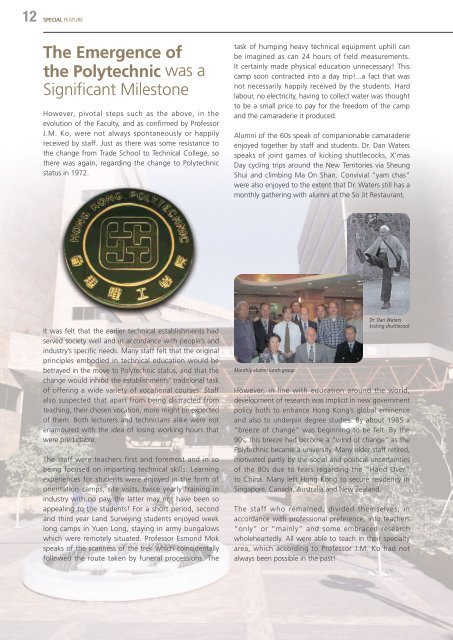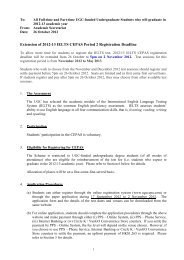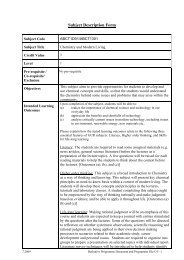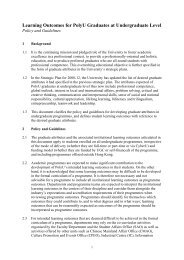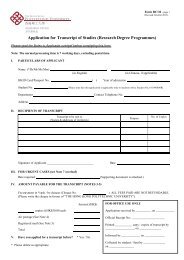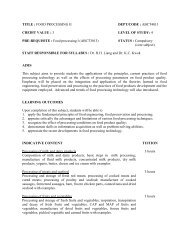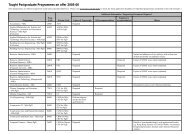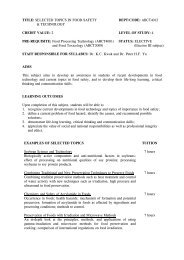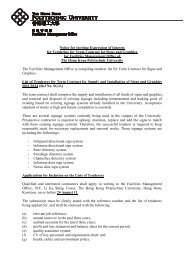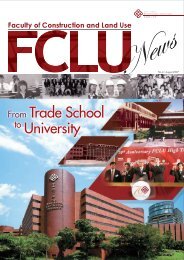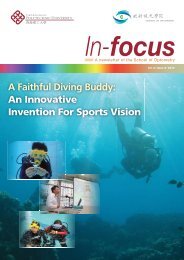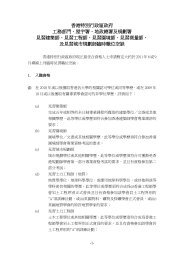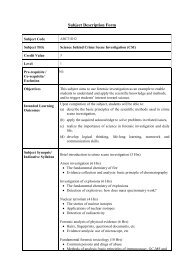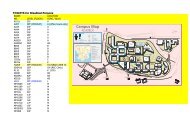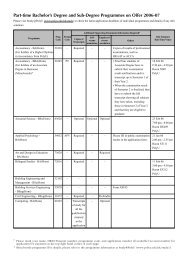Issue No. 4 (August 2007) - The Hong Kong Polytechnic University
Issue No. 4 (August 2007) - The Hong Kong Polytechnic University
Issue No. 4 (August 2007) - The Hong Kong Polytechnic University
You also want an ePaper? Increase the reach of your titles
YUMPU automatically turns print PDFs into web optimized ePapers that Google loves.
12 SPECIAL FEATURE<br />
<strong>The</strong> Emergence of<br />
the <strong>Polytechnic</strong> was a<br />
Significant Milestone<br />
However, pivotal steps such as the above, in the<br />
evolution of the Faculty, and as confirmed by Professor<br />
J.M. Ko, were not always spontaneously or happily<br />
received by staff. Just as there was some resistance to<br />
the change from Trade School to Technical College, so<br />
there was again, regarding the change to <strong>Polytechnic</strong><br />
status in 1972.<br />
task of humping heavy technical equipment uphill can<br />
be imagined as can 24 hours of field measurements.<br />
It certainly made physical education unnecessary! This<br />
camp soon contracted into a day trip!...a fact that was<br />
not necessarily happily received by the students. Hard<br />
labour, no electricity, having to collect water was thought<br />
to be a small price to pay for the freedom of the camp<br />
and the camaraderie it produced.<br />
Alumni of the 60s speak of companionable camaraderie<br />
enjoyed together by staff and students. Dr. Dan Waters<br />
speaks of joint games of kicking shuttlecocks, X’mas<br />
Day cycling trips around the New Territories via Sheung<br />
Shui and climbing Ma On Shan. Convivial “yam chas”<br />
were also enjoyed to the extent that Dr. Waters still has a<br />
monthly gathering with alumni at the So Jit Restaurant.<br />
It was felt that the earlier technical establishments had<br />
served society well and in accordance with people’s and<br />
industry’s specific needs. Many staff felt that the original<br />
principles embodied in technical education would be<br />
betrayed in the move to <strong>Polytechnic</strong> status, and that the<br />
change would inhibit the establishments’ traditional task<br />
of offering a wide variety of vocational courses. Staff<br />
also suspected that apart from being distracted from<br />
teaching, their chosen vocation, more might be expected<br />
of them. Both lecturers and technicians alike were not<br />
enamoured with the idea of losing working hours that<br />
were predictable.<br />
<strong>The</strong> staff were teachers first and foremost and in so<br />
being focused on imparting technical skills. Learning<br />
experiences for students were enjoyed in the form of<br />
orientation camps, site visits, twice yearly training in<br />
industry with no pay, the latter may not have been so<br />
appealing to the students! For a short period, second<br />
and third year Land Surveying students enjoyed week<br />
long camps in Yuen Long, staying in army bungalows<br />
which were remotely situated. Professor Esmond Mok<br />
speaks of the scariness of the trek which coincidentally<br />
followed the route taken by funeral processions. <strong>The</strong><br />
Monthly alumni lunch group<br />
Dr. Dan Waters<br />
kicking shuttlecock<br />
However, in line with education around the world,<br />
development of research was implicit in new government<br />
policy both to enhance <strong>Hong</strong> <strong>Kong</strong>’s global eminence<br />
and also to underpin degree studies. By about 1985 a<br />
“breeze of change” was beginning to be felt. By the<br />
90s, this breeze had become a “wind of change” as the<br />
<strong>Polytechnic</strong> became a university. Many older staff retired,<br />
motivated partly by the social and political uncertainties<br />
of the 80s due to fears regarding the “Hand Over”<br />
to China. Many left <strong>Hong</strong> <strong>Kong</strong> to secure residency in<br />
Singapore, Canada, Australia and New Zealand.<br />
<strong>The</strong> staff who remained, divided themselves, in<br />
accordance with professional preference, into teachers<br />
“only” or “mainly” and some embraced research<br />
wholeheartedly. All were able to teach in their specialty<br />
area, which according to Professor J.M. Ko had not<br />
always been possible in the past!


